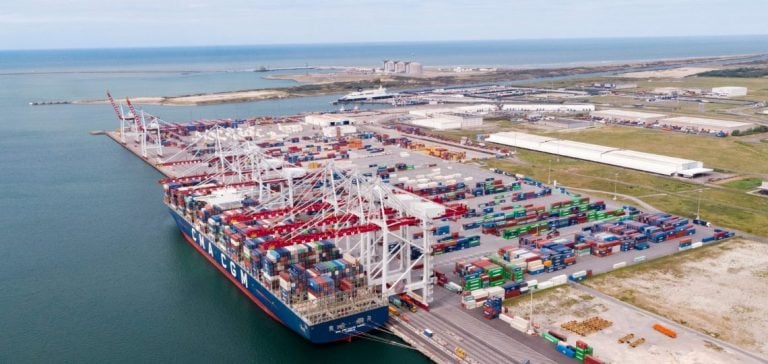The energy transition is gathering pace in the industrial sector, and Dunkirk is positioning itself as a key player in this dynamic.
The region, which accounts for a significant proportion of France’s greenhouse gas emissions, is embarking on a vast electrical infrastructure project.
The project is designed to meet growing demand for electricity, fuelled by industry’s desire to move away from fossil fuels and adopt more sustainable solutions.
The challenges are multiple, ranging from the need to modernize infrastructures to the introduction of new renewable energy sources.
In the industrial port zone, traditional companies such as ArcelorMittal are looking to reduce their carbon footprint.
The steelmaker plans to invest heavily in transforming its production methods, aiming for CO2-free steel production by 2050.
To achieve this goal, it will need to increase its electrical capacity from 200 MW to potentially over 2,000 MW, thanks to green hydrogen.
This move comes at a time when new players, such as Verkor and Prologium, are also setting up in the region to develop gigafactories for batteries, thus strengthening the local industrial ecosystem.
Massive investments for a successful transition
RTE, the French electricity transmission system operator, is playing a central role in this transformation.
With a planned investment of 1.5 billion euros between now and 2030, RTE is committed to increasing the capacity of the Dunkirk network from 1,500 MW to 6,000 MW.
The project includes the creation of new transformer substations and the installation of high-voltage overhead lines.
Laurent Cantat-Lampin, Regional Director of RTE, emphasizes the importance of this infrastructure: “Dunkirk is a laboratory, where all the issues of energy transition are present.”
This development is crucial to support the ambitions of local industries and meet their growing electricity needs.
Construction work on the new infrastructure should start within two to three years.
One of the major challenges is to integrate these new lines into a landscape already saturated with power cables, while minimizing the impact on local residents.
Careful planning of these projects is essential to ensure a smooth transition to a low-carbon economy.
The challenges of energy competitiveness
Despite advances in electricity supply, competitive pricing remains a major concern for manufacturers.
Aluminium Dunkerque, for example, consumes the equivalent of the electricity needed to power a city of one and a half million inhabitants.
To reduce its emissions by 70% by 2050, the company needs to invest 3 billion euros and find an additional 300 MW.
However, the new tariff conditions proposed by EDF are causing concern.
Laurent Courtois, Energy and Climate Director at Aluminium Dunkerque, insists on the need for a “decarbonized and competitive” contract to ensure the company’s viability.
Local players recognize that access to abundant electricity is not enough.
Competitive pricing is just as crucial to attracting and maintaining investment in the region.
Companies must navigate in an environment where energy costs can directly influence their ability to innovate and grow.
A long-term vision for decarbonization
The transition to a low-carbon economy in Dunkirk involves much more than simply increasing electrical capacity.
It also involves strategic thinking about the energy sources used and the technologies deployed.
Projects for offshore wind farms and the new EPR2 nuclear reactor at Gravelines are key elements of this strategy.
These initiatives aim to diversify the energy mix and guarantee a stable, sustainable supply for industry.
The future outlook for Dunkirk is promising, but requires close collaboration between public and private players.
The success of this transition will depend on the ability of companies to adapt to the new realities of the energy market and to innovate in their production processes.
The region aspires to become a model of decarbonization, but this requires collective commitment and sustained investment to turn ambitions into reality.





















